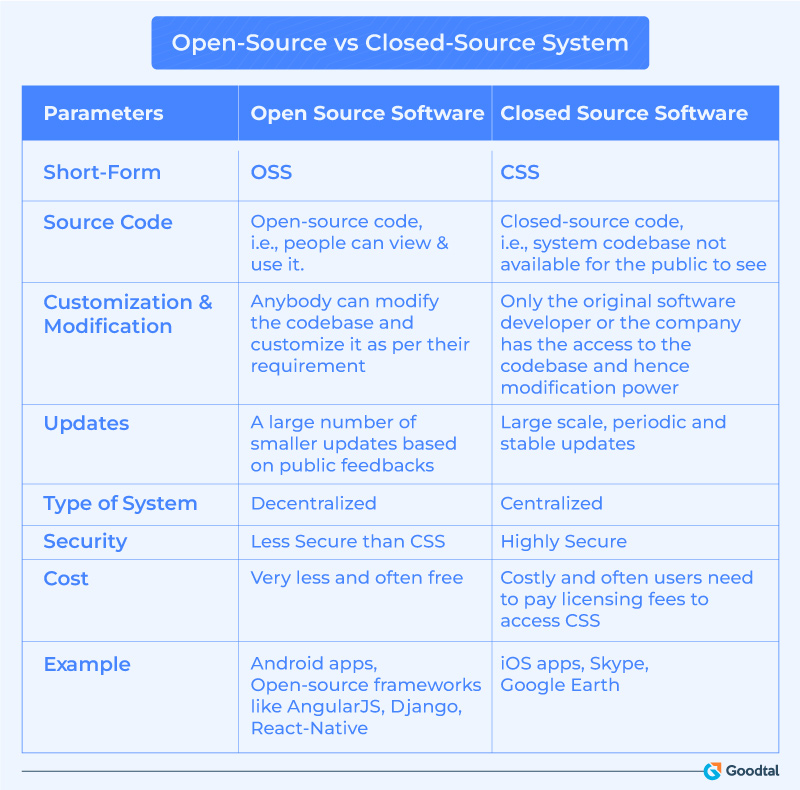
With the growing competition in the mobile app market, the need to create robust apps with excellent performance is crucial for the success of any app.
Great UI & UX are the parameters that contribute highly to the popularity and success of mobile apps; after all, users are the ones who decide the future of an app. From a user's perspective, nobody wants to stay on an app that takes a lot of time to deliver the result or, in simple words, has a very sluggish performance.
To place their mobile apps in a comfortable place in the market, mobile app developers today are betting big on creating apps that provide the best user experience no matter the cost of development.
There's one question every business and mobile app developer needs to answer when thinking about building a mobile app. What kind of mobile app will guarantee higher returns?
Cross-platform apps are always the most affordable option to develop apps that can run on both Android and iOS, but when it comes to performance, native app development wins the race.
In the initial stages, businesses investing in native app development need to figure out what operating system they should target, iOS or Android. In this post, we'll discuss some key differences between iOS and Android app development that will help businesses figure out the right type of app they should invest in.
Key Differences Between iOS and Android App Development
Let's dive deeper and learn more about the profound differences between iOS and Android app development.
#1 Programming Language
The most striking difference between iOS and Android app development is the programming language behind its codebase.
Swift, developed by Apple Inc, is the key programming language behind iOS mobile app development. Swift is a high programming language that Apple uses for all its devices and operating systems, be it iPadOS, macOS, watchOS, tvOS, or iOS.
Meanwhile, Kotlin, Java, and C++ are programming languages widely used for Android app development. Kotlin is a statically-typed, high-programming language used by almost 60% of Android developers.
Swift, developed especially for Apple devices, was curated to ease the development process for iOS developers and hence is easier to learn and use. Meanwhile, Kotlin, Java, and C++ are comparatively complex and challenging to learn.
Hence when it comes to ease of learning and development, iOS app development wins the race over Android app development.
#2 Overall Development Time
When it comes to the overall mobile app development time, Android apps take more time to develop and launch as compared to iOS apps. As we know, iOS operating systems are limited to just iPhones; hence iOS developers have to work on building apps keeping in mind just a single brand and its interface requirements.
On the other hand, Android apps run on a wide range of smartphone brands and devices with different aspects and screen sizes.
To understand this, consider Samsung Fold and Flip smartphones and on the other hand, take a OnePlus phone. Samsung Fold has a unique design where the screen is divided into two parts that can be used as one or in halves. When an Android developer is working on any app, they'll have to keep in mind the design specifications of Samsung Fold and, simultaneously, for simple smartphones with a single screen such as OnePlus.
Considering the mentioned criteria, Android development companies have to build different versions of the same app in order to be used flawlessly on every smartphone, irrespective of screen type and size. Hence Android developers have to work more on the fronts of responsive design and user interface than iOS developers, thus making Android apps have higher development time.
#3 Overall Development Costs
Various costs form the overall development cost of any app development, such as developer hourly rates, platform charges, etc.
Considering app developer hourly rates, iOS and Android app developers charge nearly the same. According to Upwork, iOS app developers often charge $45-75 per hour, whereas Android app developers' rate varies from $25-85.
Now coming to platform charges, the Apple Development program, a program that developers must subscribe to for iOS app development, charges $99 per year. Meanwhile, Android doesn't have subscription charges, but developers need to pay $25, a one-time registration fee charged by Google Play.
Another criterion affecting the mobile app development cost is the overall development time. We noticed that Android app development takes comparatively more time than iOS app development from the previous point. And higher app development time leads to higher development costs due to more developer hours and use of resources.
Hence, the difference between the overall development cost of iOS app development and Android app development is very subtle. But judging by the development time it takes for Android apps, they indeed are a bit more costly to develop.
Suggested Reading: How to Develop a Successful Mobile App
#4 Type of Code
The most striking difference between iOS and Android apps is their codebase. Android apps are open systems, which means they are open-source software. Open-source software has open-source code, which means anybody can access the codebase, be it a user or a third-party developer.
Android systems opt for open-source code files because the Android operating system fuels many mobile devices, and most manufacturers further modify any Android apps based on their device protocol. Samsung, Motorola, Xiaomi, and Huawei are some of the top Android smartphone developers.
iOS is a closed system; hence, any iOS software or app has a closed-source codebase. Closed-source code files can not be accessed by anyone other than the main developer.
Apple follows a closed-source code policy to make it impossible for third parties to view any iOS app's codebase and modify it. As we know that Apple Inc is the only manufacturer of iOS-based smartphones; hence they don't need to have open-source files to be manipulated by other device manufacturers.
These closed-source code features of iOS apps make them more secure than open-source Android apps.

#5 Publishing Protocol and Time Taken
Regarding publishing the mobile app on the app stores, both the Apple app store and Google Play Store hold different requirements. Apple is known to have one of the strictest policies when it comes to allowing an iOS app to be published and made available on Apple App Store. Apple is known to be very strict regarding the quality and security of an app to be published on its platform.
And often, this makes iOS apps and developers go through various modifications for an app to be considered fit for publishing, leading to a higher wait time for its publishing.
Meanwhile, in Google Play Store, the platform where Android apps are published for Android phone users to download, the publishing protocol and approval process is lenient compared to its counterpart. Hence, publishing any app takes very little time.
Google Play Store's lack of stringent protocols for app approval often leads to publishing bad-quality apps with a significant number of bugs, which end up affecting user experience and the app's security in the future.
#6 Security Standards
Whenever it comes to security, almost every smartphone user knows that iPhones win over Android phones. One of the many reasons iPhones are considered safer than Android Phones is that iOS apps are more secure than Android apps.
There are many reasons iOS apps win over Android apps. The first is that the former follows a closed source code policy, due to which hackers can't access its code files and cannot find any vulnerabilities. Meanwhile, Android apps have open-source code, which makes it very easy to be modified by device owners, thus leading to potential vulnerabilities that hackers can take advantage of.
#7 Flexibility and Customization
When it comes to flexibility and customization, Android apps are much more flexible and customizable than compared to iOS apps. As we know, Android apps have an open-source codebase, developed keeping in mind the need of various smartphone manufacturers to customize the app code to make it more compatible with their smartphone brand.
Android developers can access Google's vast library of designs and features to customize their Android apps and create a beautiful and robust user interface and experience.
Meanwhile, as iOS apps have a closed-source codebase and due to Apple's stringent security measures, iOS development companies have few choices as compared to the Android ecosystem to decide the look and feel of their apps. This makes iOS apps less flexible and customizable as compared to Android apps.
Native or Cross-Platform, Which One Is the Best for Your Business?

Wrapping Up
iOS and Android are the two most popular operating systems powering the leading smartphone brands. In this post, we discussed iOS and Android apps, their top differences, and which app outshines the other in various parameters.
In some key parameters, such as security, ease of development, and overall development time, iOS apps are much stronger than Android apps. Meanwhile, there are parameters such as flexibility and customization where Android app developers get more free-hand compared to iOS developers.
The differences discussed above are essential to note for mobile app developers looking to develop either iOS or Android mobile apps.
